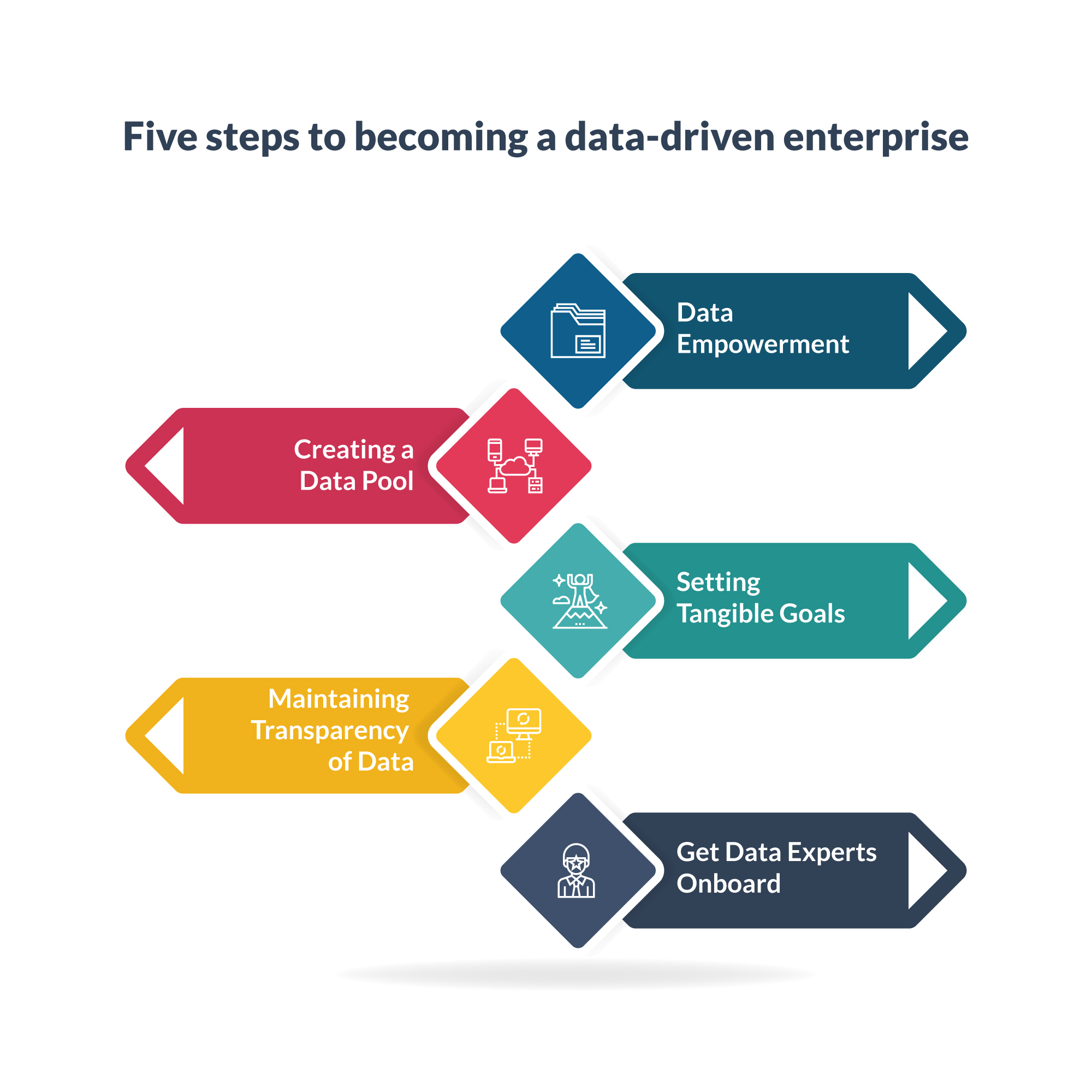What It Means to Be a Data-Driven Enterprise and How to Become One
Being data-driven is about more than just the numbers. It takes a cultural commitment as well.
Join the DZone community and get the full member experience.
Join For FreeIn today's digital economy, it is generally understood that businesses must become data-driven enterprises to improve business performance, create sustainable value for consumers, build and run more innovative and efficient businesses to deliver unprecedented levels of performance to remain competitive.
But How Exactly Does a Business Become Data-Driven Enterprise?
According to the McKinsey Global Institute report, data-driven organizations are 23 times more likely to acquire customers, 6 times as likely to retain those customers, and 19 times more likely to gain in profitability.
Data discovery is a powerful trend causing reverberations for all major industries. Data and Analytics are the buzzwords in the business world today. An increasing number of organizations today are striving to inculcate a data-driven approach to their work. A recent Economist Intelligence Unit survey concluded that adopting a data-driven culture can put enterprises substantially ahead of their competitors and peers regarding financial gains.  However, what does it mean to be a data-driven enterprise? The same survey also pointed out that the more successful companies have transformed into data-driven enterprises by working their way from the ground up, providing essential training to their workforce and inculcating a culture of data sharing at all hierarchical levels, across departments.
However, what does it mean to be a data-driven enterprise? The same survey also pointed out that the more successful companies have transformed into data-driven enterprises by working their way from the ground up, providing essential training to their workforce and inculcating a culture of data sharing at all hierarchical levels, across departments.
“Data can be the real goldmine for any organization if it is enabled to flow freely across the entire business ecosystem.”
This means becoming a data-driven enterprise goes way beyond working with the right applications and tools. It is about making data and analytics a core part of the business strategy and operations. It is also about driving a change in mindset so that data analytics becomes the foundation of all business decisions at every level.
Five Key Steps to Becoming a Data-Driven Enterprise
Data Empowerment: As a data-driven culture commences to develop within the organization, it is paramount to identify and address any hindrances head on. C-Suite leadership needs to assure the right business processes are in place that allows stakeholders to raise business operation concerns about how data is being leveraged and ensure those concerns are considered, reviewed, and addressed for better decisions.
Creating a Data Pool: The obvious first step toward setting up a data-driven company is to build a pool of meaningful data before embracing a shift in work culture. Cloud platforms are easy, accessible, and inexpensive tool for assimilating this pool of data through data mining as well as achieving meaningful big data analysis through web crawling. So, collecting as much data as possible is the basic first step toward driving a paradigm shift in work culture. The process of data collection should follow a roadmap that supports constant and consistent data assimilation until you have an enterprise data hub for the entire organization.

Setting Tangible Goals: Setting KPI and metrics-driven business goals with quantified and measurable targets that can be easily assessed is another key element in ensuring that your strategy for bringing about a data-driven work culture stays on track. These goals will help you analyze which aspects of your strategy are working well and which ones need to be rectified. Analysis of goals also helps in creating a more detailed strategy that offers everyone involved a clear picture of the outcome.
Maintaining the Transparency of Data: Having a considerable amount of data and restricting its access to top management is counter-productive to the idea of building a data-driven enterprise. A lot of executives are uneasy with the idea of giving every employee access to figures that reflect the company’s performance metrics and sales in black and white, but transparency and easy access lie at the very core of data-driven work culture. How else will your workforce embrace a data-driven work culture?
Get Data Experts Onboard: Experts can be brought in to kick-start the data journey, but the ultimate goal is to build data science teams made up of a combination of experts with diverse cross-functional skill sets to perform various activities across the data lifecycle. Work within your financial resources to put together a team that can analyze the data for you and helps incorporate a technological setup that facilitates the percolation of this information across different channels, departments, and hierarchical levels.
Conclusion: The Path of Digital Maturity
Enabling the data-driven approach and executing a real digital transformation is not about incorporating a tool, a set of techniques, or even having a great team in your IT department. Data-driven organizations have had to undergo a slight cultural shift, which has resulted in delivering the greatest value to customers and stakeholders.
Published at DZone with permission of Jagannadh Kanumuri. See the original article here.
Opinions expressed by DZone contributors are their own.

Comments